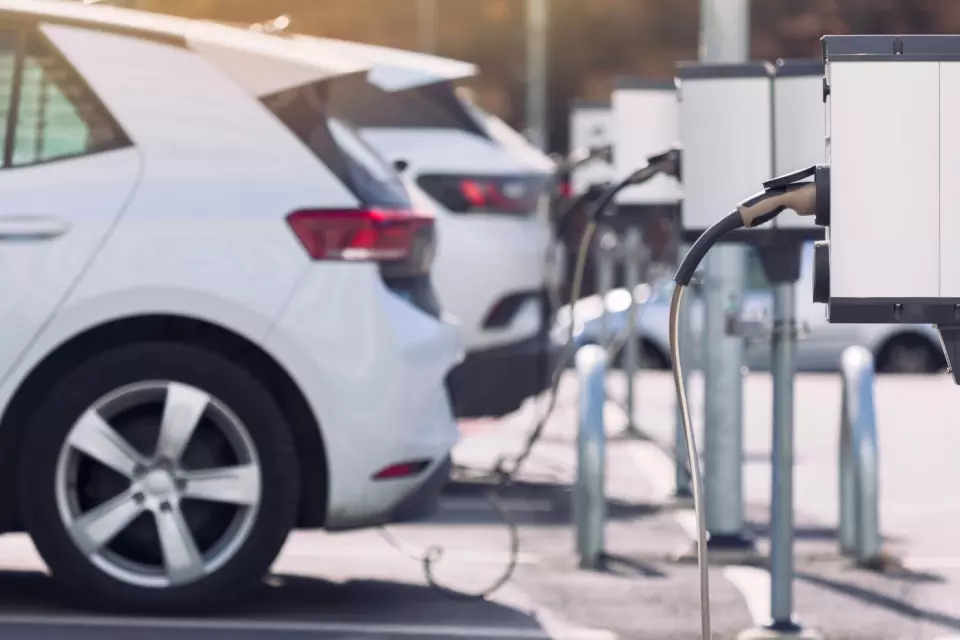Broadband fibre could be key to national charger system that will not frustrate drivers.
By Sukanya Maharathy, Head of New Access and IoT at Chorus.
There is no doubt that electric vehicles are the way of the future and will play a significant role in decarbonising the transport sector. Lesser known is that there are several infrastructure challenges that need to be addressed to build a future-proofed, nationwide network of public EV chargers that are accessible, durable, and secure enough to meet the future demand of the EV fleet and ultimately reduce range anxiety.
There have been promises and pledges that New Zealand will address the fact we currently have the fewest number of public chargers per EV in the OECD - about 400 nationwide. To address this, the government and private sector need to commit to build and roll out a nationwide network of 10,000 public EV chargers by 2030. However, there is a lot of work to be done to achieve this goal.
Perhaps Terry Collins, Principal Policy Advisor at the Automobile Association, states it best: “We have been pushing for more EV chargers across Aotearoa for quite some time now. All EV users want is to be confident that they can easily access safe charging stations when and where they need to.”
However, he says it’s not just about the number of chargers, it’s also about ensuring they’re robust and future-proofed and have the tech capability to manage the expected massive growth in EVs over the next decade.
“We also need nationwide standards ensuring all chargers are safe to use, secure from cyberattacks, have sophisticated communication abilities so the network can be well-managed and monitored remotely, and that the chargers are as energy efficient as possible,” he says.
According to a recent article by Jordan Ramer, CEO of United States charging company, EV Connect, the key to making these value-added features a reality is having smart connected software.
“Considering how EV charging stations are generally unattended, unlike traditional gas stations, the right software enables automated processes and call-centre-supported troubleshooting. Remote station monitoring and predictive maintenance systems can help ensure uptime to protect stations' reputation and revenue.”
Spotlight on connectivity
With a greater reliance on software to allow more advanced charging infrastructure to operate effectively, comes the need for future-proofed, high bandwidth connectivity.
That’s where fibre comes in – a highly reliable broadband technology, well placed to handle the connectivity demands facing the EV charging sector.
Connectivity ensures large quantities of data can be quickly transmitted to the cloud with ease 24/7 for key functions such as payment, real-time reporting, monitoring usage patterns, adding CCTV for safety and security, and optimising charging schedules.
The efficiency, scale and reach of Chorus’ world-class fibre network can be the key to unlocking growth and higher adoption of EVs across Aotearoa. Our reliable fibre network covers 87 per cent of the population across 412 towns and cities and is well placed to deliver on our EV future.
Poor connectivity can mean a whole range of issues, including everything from unreliable payment methods to the station being offline entirely, resulting in frustrated EV owners and ultimately a loss of revenue to charging providers.
To further assist local New Zealand charging companies in taking a slice of what’s expected to be a global US$141 billion market by 2030, Chorus’ Smart Locations product provides fixed fibre connectivity to various street assets without a traditional address.
So this is a game changer in future-proofing EV charging infrastructure throughout the country, supporting them with high bandwidth capabilities, without the need for physical premises.
With more Kiwis adapting to sustainable fuel alternatives, New Zealand is on track to become a nation of EV enthusiasts. Powered by wide-ranging fibre connectivity that can support high bandwidth needs, EV charging stations across the country can set the standard for resilient smart infrastructure.
For more information: chorus.co.nz/business/iot-and-smart-locations






